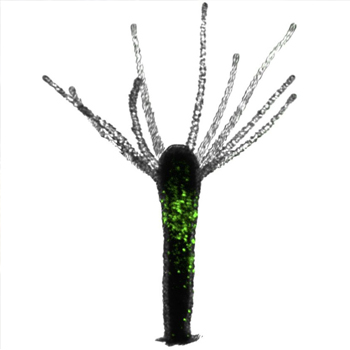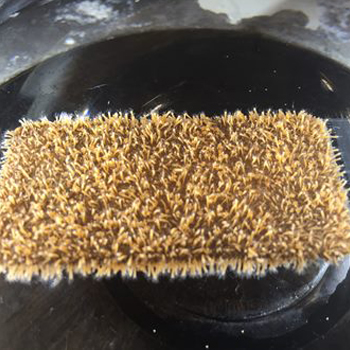CHRISTINE E. SCHNITZLER, PH.D.

Christine Schnitzler, Ph.D.
Associate Professor of Biology
Dr. Christine E. Schnitzler earned a bachelor’s degree in Environmental Science from Northwestern University. She then earned her master’s degree in Marine Science from Moss Landing Marine Labs of California State University-Monterey Bay. She earned her doctorate in Zoology from Oregon State University. She was a postdoctoral fellow and research fellow at the National Human Genome Research Institute of the National Institutes of Health.

Research Program
Research in the Schnitzler lab is centered on exploring the evolution of and mechanisms underlying fundamental biological processes in marine invertebrate animals, such as stem cell-mediated regeneration, innate immunity, and cellular senescence. Our focus is on evolutionary and functional genomics, and we utilize both computational and functional experimental approaches to explore these processes using the colonial cnidarian Hydractinia as a model.

Model Organism
The hydrozoan cnidarian Hydractinia is a colony-forming invertebrate animal that reproduces both sexually and asexually, has multiple polyp types in a single colony, is capable of whole body regeneration, possesses an identifiable stem cell lineage, and displays well-characterized self/non-self (allorecognition) phenotypes. It possesses many useful traits such as colonies with large quantities of genetically identical individuals, short generation times, reliable daily spawning, easily manipulated embryos, simple culturing procedures, transparent tissues for in vivo imaging, and a decades-long lifespan. Molecular tools have been developed to analyze gene function in all life stages of Hydractinia, including stable transgenesis for overexpression or reporter line construction, as well as gene loss of function via RNAi, morpholino injection and, most recently, CRISPR/Cas9 mediated mutagenesis. The genome of Hydractinia has been sequenced by the Hydractinia Genome Consortium which is led in part by Dr. Schnitzler. Final genome assemblies and other genomic resources are forthcoming and will be shared with the community through the Hydractinia Genome Project Portal: http://research.nhgri.nih.gov/hydractinia